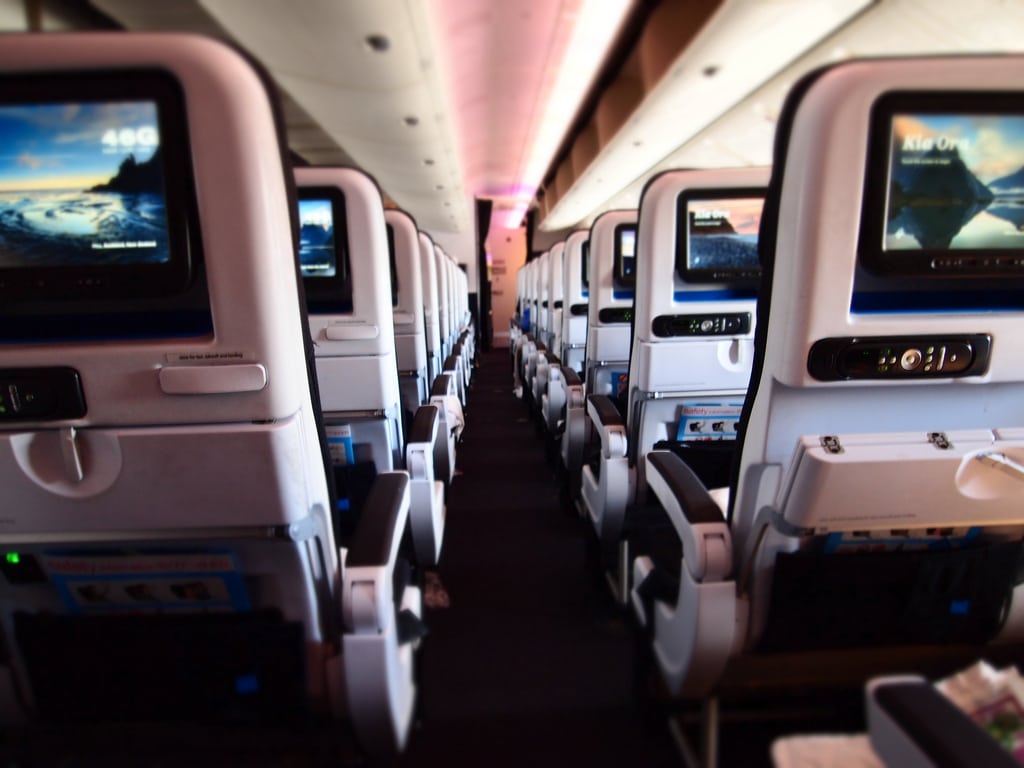Pay-as-you-weigh for airline passengers a possibility?

Skift Take
Airlines should introduce “pay as you weigh” pricing for plane tickets, an academic has suggested.
Charging overweight fliers more would help carriers recoup the cost of the extra fuel required to carry them.
The idea has been floated in the Journal of Revenue and Pricing Management publication, by Bharat P Bhatta, an academic in Norway.
He suggests three methods of implementing the scheme. A straightforward price per kilogram, a fixed low fare with heavier passengers paying a surcharge and lighter passengers being offered a discount.
The third option would see passengers divided into three bands – heavy, normal and light and being charged accordingly.
“I think the simplest way to implement this would be for passengers to declare their weight when buying a plane ticket,” Dr Bhatta at Sogn og Fjordane University College told The Daily Telegraph. “This would save time and eliminate expense.
“At the airport airlines could randomly select passengers and if they lied about their weight they would have to pay the fat fare and a penalty.”
Airlines are already trying to tackle the increasing problem of passenger obesity, which is becoming a major issue especially in the United States.
British Airways also has a policy in which passengers who are unable to fit in a single seat are first given an extension seat belt free of charge. If they are still too large, then they will be expected to buy another seat.
In recent years one passenger deemed as being overweight was escorted off an Air Transat flight from Gatwick to Toronto to see his dying aunt, because he was unable to afford the £928 demanded by the airline for two seats.
Overweight passengers have, on occasion, even been bumped from full flights because there is no room for them on the plane.
Ian Yeoman, the editor of the Journal, endorsed Dr Bhatta’s proposal."For airlines, every extra kilogram means more expensive jet fuel must be burned, which leads to CO2 emissions and financial cost.
"As the airline industry is fraught with financial difficulties, marginally profitable and has seen exponential growth in the last decade, maybe they should be looking to introduce scales at the check-in."
From the paper (in PDF here)
The PAYW approach can make fares more accurately reflect the unit cost of operating a flight...Weight–based policy may also lead to lower fares especially in developing countries were average weights are lower. Airline may, however, lose revenue if only lighter people fly...Lighter passengers also currently pay for the excess weight of heavier passenger.
But with the PAYW model, heavier passenger pay at least the costs that they impose on airlines thus distributing costs of provision of air travel service more efficiency among passengers.
The use of the PAYW model is also subject to problems; some institutional and other practical. Current legal provisions in many countries may not allow airlines to charge passengers according to their body weight. It requires regulatory reforms, administrative procedures and new rate structures. To the extent that passengers bear these costs, PAYW options may increase transaction costs.
It also takes time to gain general acceptance of new concepts; and this allows opposition to organize; there will inevitably be complaints about treating passengers as goods and discrimination against heavier people. Added to this, passengers and airlines would not know fares and revenues until they actually arrive at the check-in under some options. Finally, as with any change, the PAYW model will lead to some unforeseen effects for passengers and revenues to airlines and people tend to be risk averse when it comes to change.
![]()




